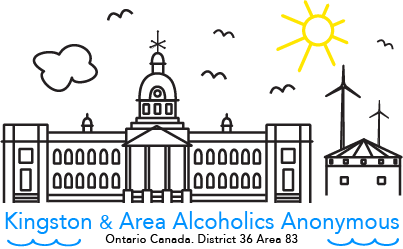
Facts About Alcoholics Anonymous (AA)
What AA Does
What AA Does NOT Do
Download / Print
Preamble
Alcoholics Anonymous is a fellowship of people who share their experience, strength and hope with each other that they may solve their common problem and help others to recover from alcoholism. The only requirement for membership is a desire to stop drinking. There are no dues or fees for A.A.membership; we are self-supporting through our own contributions. A.A. is not allied with any sect, denomination, politics, organization or institution; does not wish to engage in any controversy; neither endorses nor opposes any causes. Our primary purpose is to stay sober and help other alcoholics to achieve sobriety. Reprinted with permission of the A.A. Grapevine Inc.
The Twelve Steps
- We admitted we were powerless over alcohol – that our lives had become unmanageable.
- Came to believe that a Power greater than ourselves could restore us to sanity.
- Made a decision to turn our will and our lives over to the care of God, as we understood Him.
- Made a searching and fearless moral inventory of ourselves.
- Admitted to God, to ourselves, and to another human being the exact nature of our wrongs.
- Were entirely ready to have God remove all these defects of character.
- Humbly asked Him to remove our shortcomings.
- Made a list of all persons we had harmed, and became willing to make amends to them all.
- Made direct amends to such people wherever possible, except when to do so would injure them or others.
- Continued to take personal inventory and when we were wrong promptly admitted it.
- Sought through prayer and meditation to improve our conscious contact with God as we understood Him, praying only for knowledge of His will for us and the power to carry that out.
- Having had a spiritual awakening as the result of these steps, we tried to carry this message to alcoholics, and to practice these principles in all our affairs.
Reprinted with permission of the A.A. World Services Inc.
The Twelve Traditions
- Our common welfare should come first; personal recovery depends upon A.A. unity.
- For our group purpose there is but one ultimate authority – a loving God as He may express Himself in our group conscience. Our leaders are but trusted servants; they do not govern.
- The only requirement for A.A. membership is a desire to stop drinking.
- Each group should be autonomous except in matters affecting other groups or A.A. as a whole.
- Each group has but one primary purpose – to carry the message to the alcoholic who still suffers.
- An A.A. group ought never endorse, finance or lend the A.A. name to any related facility or outside enterprise, lest problems of money, property and prestige divert us from our primary purpose.
- Every A.A. group ought to be fully self-supporting, declining outside contributions.
- Alcoholics Anonymous should remain forever nonprofessional, but our service centers may employ special workers.
- A.A., as such, ought never be organized; but we may create service boards or committees directly responsible to those they serve.
- Alcoholics Anonymous has no opinion on outside issues; hence the A.A. name ought never be drawn into public controversy.
- Our public relations policy is based on attraction rather than promotion; we need always maintain personal anonymity at the level of press, radio and films.
- Anonymity is the spiritual foundation of all our traditions, ever reminding us to place principles before personalities.
Reprinted with permission of the A.A. World Services Inc.
Serenity Prayer
God, grant me the serenity to accept the things I cannot change,
courage to change the things I can,
and wisdom to know the difference.
What AA Does
At meetings AA members share their recovery experience with anyone seeking help with a drinking problem, and give individual services or “sponsorship” to the alcoholics coming to AA. The AA program, as set forth in the Twelve Steps to recovery, offers the alcoholic an opportunity to develop a satisfying way of life free from alcohol. Nonalcoholic guests are welcome at “open” AA meetings. Attendance at “closed” meetings is limited to those who are alcoholic or think they may have a drinking problem. Prepared and approved by the Public Information Committee, June, 2001 using AA references.
What AA Does NOT Do
- Make medical or psychiatric diagnoses or prognoses, or offer advice.
- Provide detox or nursing services, hospitalization, drugs, housing, jobs, money or other welfare services.
- Accept any money for its services or contributions from outside sources.
- Provide letters of reference to parole boards, lawyers, court officials, social agencies, employers, etc.
- Engage in or support education, research, or professional treatment.
Prepared and approved by the Public Information Committee, June, 2001 using AA references.
